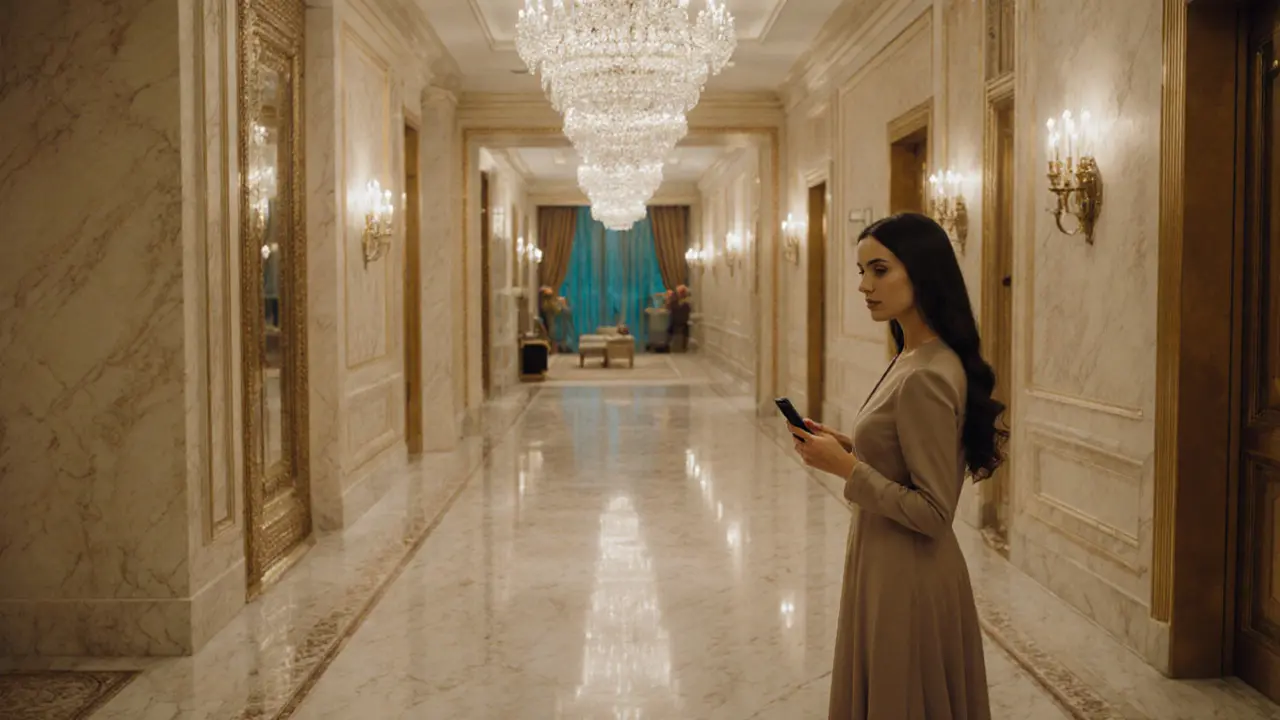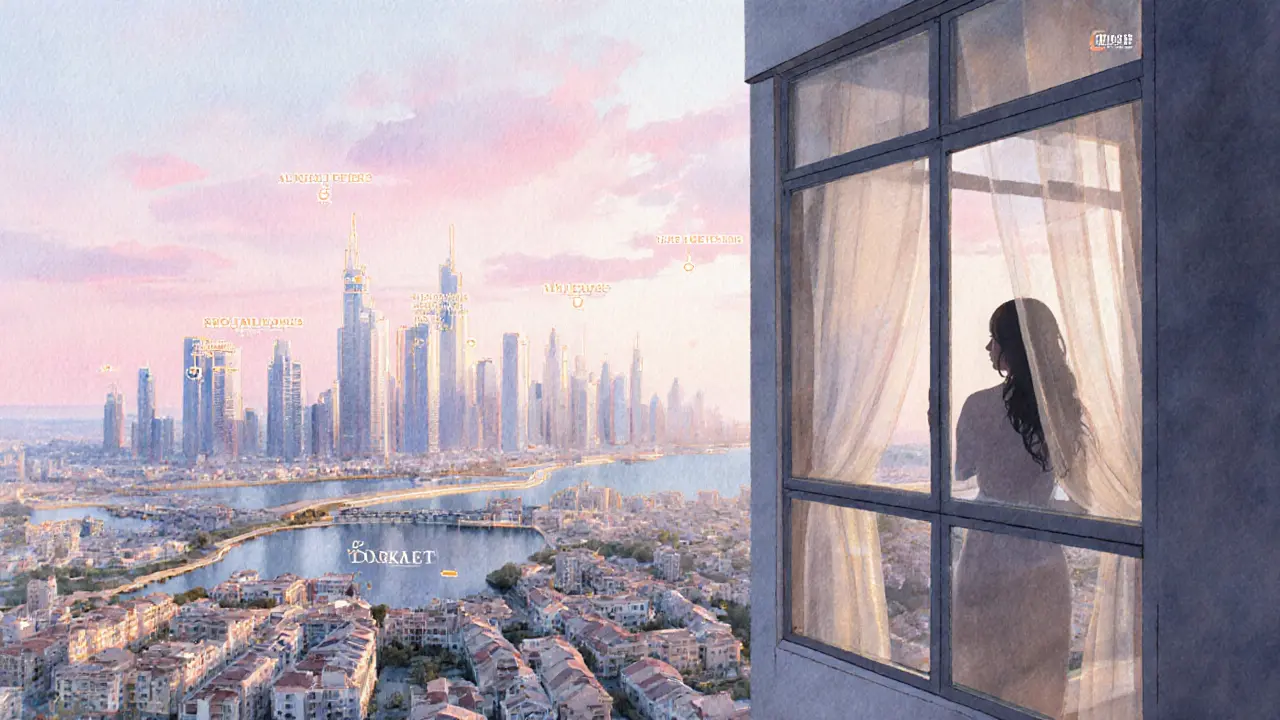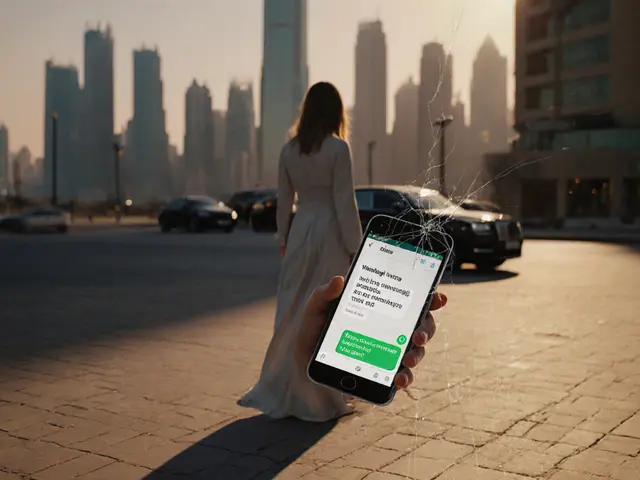- Home
- Adult Entertainment
- How Call Girls in Dubai Shape Local Society & Culture

How Call Girls in Dubai Shape Local Society & Culture
Key Takeaways
- Prostitution is illegal in the UAE, yet a hidden market of call girls operates in Dubai.
- The industry influences the local economy, tourism patterns, and real‑estate prices in certain districts.
- Social norms and cultural narratives are reshaped as locals and expats negotiate secrecy, stigma, and moral debates.
- Health, safety, and human‑trafficking concerns are tightly linked to the underground nature of the trade.
- Public perception is driven by media portrayals, legal crackdowns, and shifting attitudes among younger residents.
Direct Answer
Although prostitution is prohibited by UAE law, the presence of call girls in Dubai creates a subtle but measurable impact on the city’s social fabric, economy, and cultural conversation. The industry fuels a niche tourism sector, affects property values in areas where services are discreetly offered, and sparks ongoing debates about morality, gender roles, and legal reform.
Comprehensive Guide to Understanding the Phenomenon
When you hear “Dubai,” you probably picture glittering skyscrapers, luxury shopping, and a thriving nightlife. Beneath that glossy surface, another layer exists-one that operates mostly out of sight. To grasp the full picture, we need to look at how call girls intersect with law, economics, culture, and public health.
Definition and Context
Call girls in Dubai refers to women who provide consensual sexual services on a private‑appointment basis, often arranged through online platforms, word‑of‑mouth, or discreet agencies. Because the UAE follows a strict interpretation of Sharia law, any form of prostitution is criminalised under Federal Law No. 3 of 1987, carrying heavy fines, imprisonment, and possible deportation for expatriates.
Despite the legal risk, the market persists. Estimates from regional NGOs suggest thousands of women may be involved, ranging from Emirati nationals to migrant workers from South Asia, Eastern Europe, and Africa. The demand comes from a mix of wealthy tourists, business travelers, and some local residents who seek anonymity.

Economic Impact
Underground sex work contributes to Dubai’s economy in three indirect ways:
- Tourism niche: Certain high‑end travel agencies package “discreet experiences” for affluent clients, adding a hidden revenue stream to luxury hotels and private clubs.
- Real‑estate premium: Neighborhoods known for privacy-like Al Barsha, Jumeirah Lake Towers, and parts of Deira-see slightly higher rental rates for apartments marketed as “quiet, secure, and low‑traffic.” This premium is partially driven by the willingness of clients to pay for covert proximity.
- Service ecosystem: Escort agencies employ administrative staff, drivers, and tech developers, creating ancillary jobs even though the core activity remains illegal.
Because the activity is unregistered, exact figures are unavailable. However, a 2023 report by the Dubai Police estimated that illegal sexual services generate roughly 0.3 % of the city’s total hospitality revenue-a modest but non‑negligible amount for a city that moves billions daily.
Social and Cultural Implications
The existence of call girls challenges several cultural pillars in Dubai:
- Gender norms: Traditional Emirati society places a high value on modesty and family honor. The hidden market forces a re‑evaluation of women’s autonomy, especially among expatriate communities where gender roles differ.
- Stigma and secrecy: Participants-both providers and clients-often compartmentalise their lives, leading to double lives that strain personal relationships and mental health.
- Public discourse: Social media debates, especially on platforms like Instagram and TikTok, oscillate between condemnation and calls for liberalisation. While older generations tend to denounce the practice, younger professionals occasionally argue for a regulated framework to protect workers.
These dynamics feed a broader conversation about modernity versus tradition, a tension that defines much of the United Arab Emirates’ rapid development.
Health, Safety, and Human‑Trafficking Concerns
Because the trade operates outside the law, health safeguards are limited. Women often lack access to regular medical check‑ups, contraceptives, or legal recourse if abused. A 2022 study by the International Labour Organization highlighted that 45 % of sex workers in the Gulf region reported having experienced some form of coercion or exploitation.
Human‑trafficking networks exploit the high demand for discreet services. Victims-often from economically vulnerable backgrounds-are trafficked under false promises of legitimate employment. Dubai’s “Human Trafficking Prevention Unit” reported a 12 % rise in cases related to sexual exploitation between 2020 and 2024.
Public health officials therefore face a paradox: the need to protect citizens from disease and abuse while simultaneously cracking down on an illegal industry.
Legal Framework and Enforcement
UAE law treats any exchange of sexual services for money as a criminal offense. Penalties range from AED 5,000 fines to up to 10 years imprisonment, plus possible deportation for non‑citizens. Enforcement has intensified since 2018, with regular sting operations targeting hotels, private villas, and online platforms.
Nevertheless, law enforcement faces challenges:
- Digital encryption makes tracking online advertisements difficult.
- Victims may be unwilling to cooperate due to fear of social stigma or deportation.
- Corruption allegations suggest that occasional bribery facilitates continued operation in certain upscale venues.
These constraints produce a cat‑and‑mouse dynamic that keeps the industry alive but volatile.

Public Perception & Media Representation
Media coverage oscillates between sensational headlines and investigative reports. Local newspapers rarely name individuals, but they do publish stories about police raids, framing the narrative as a triumph of law and order. International outlets, however, sometimes highlight Dubai’s “hidden underbelly,” feeding tourist curiosity and inadvertently boosting the demand.
Social media influencers, especially those with followers in the Middle East, walk a fine line, using coded language (“private companionship,” “luxury experiences”) to discuss the topic without breaching platform policies. This creates a covert information ecosystem that keeps the market informed.
Comparison Table: Call Girls vs. Licensed Nightlife Venues in Dubai
| Aspect | Call Girls (Underground) | Licensed Nightlife (Clubs, Bars) |
|---|---|---|
| Legal Status | Illegal; punishable by law | Fully legal, regulated by Dubai Municipality |
| Visibility | Highly discreet, accessed via private networks | Public venues, advertised openly |
| Economic Contribution | Unreported, estimated < 0.5 % of hospitality revenue | Reported, > 15 % of tourism revenue |
| Health Safeguards | Limited, dependent on individual providers | Mandatory health checks for staff, regulated environment |
| Risk of Exploitation | High - linked to trafficking networks | Low - subject to labor laws and inspections |
| Client Demographic | Affluent tourists, business visitors, some locals | Broad - residents, tourists, expatriates |
Frequently Asked Questions
Is prostitution legal in Dubai?
No. The UAE criminalises any exchange of sexual services for money under Federal Law No. 3 of 1987. Penalties include fines, imprisonment, and possible deportation for non‑citizens.
How does the underground sex industry affect Dubai’s economy?
It contributes a modest, unrecorded share of hospitality revenue, influences niche luxury tourism, and raises property values in discreet neighbourhoods where services are accessed.
What are the main health risks for sex workers in Dubai?
Because the trade is illegal, workers often lack regular health screenings, access to contraception, or legal protection, increasing the risk of sexually transmitted infections and exploitation.
Are there any signs that the government is changing the law?
So far, the UAE has reinforced penalties and conducted more raids. Public debate exists, but no legislative proposal to legalise or regulate prostitution has been introduced.
How does the presence of call girls influence social attitudes?
It creates a split: older generations tend to condemn it as immoral, while younger expatriates and some locals argue for a regulated framework to protect workers and reduce trafficking.
Conclusion and Looking Forward
Dubai’s rapid rise as a global hub brings both glitter and shadow. Call girls in Dubai exist despite strict law, shaping a hidden economy, nudging cultural conversations, and raising serious health and human‑rights concerns. While the city’s authorities focus on enforcement, public discourse hints at possible future reforms aimed at protecting vulnerable workers. Understanding this nuanced impact helps residents, tourists, and policymakers navigate a complex reality that sits behind the city’s polished façade.

Leonard Fisk
I work professionally in the escort industry and have developed a deep expertise in the field. I enjoy sharing my perspectives on the evolving entertainment scene in Dubai. Writing about my experiences allows me to connect with a diverse readership. My approach is always honest, insightful, and respectful of the industry’s nuances.
About
Discover escort UAE in our blog! Uncover the UAE’s nightlife, premium companionship, and discreet elegance with unique stories and insights. Start your journey today









